On the morning of Columbia University’s commencement last week, an intergenerational group of Jewish alumni gathered in the rain outside the Manhattan campus’s heavily policed gates, wearing keffiyehs and shirts emblazoned with the words “not in our name”. Two had graduated more than 60 years earlier, and one spoke of having fled the Nazis to the US as a child. Others recalled participating in Columbia protests of the past, including those that led the university to divest from apartheid South Africa.
They spoke as alumni and as Jews to condemn the university’s investments in Israel, its repression of pro-Palestinian speech, and its capitulation to the Trump administration’s assault on academic freedom in the name of fighting antisemitism on campus. They had planned to burn their Columbia diplomas in protest, but the rain got in their way, so many ripped them to pieces instead.
“As a Jewish person, I’m really appalled at the idea that they are trying to make it sound as if opposing genocide is somehow antisemitic,” said Josh Dubnau, a professor at Stony Brook University who received a PhD from Columbia in 1995 and led the protest. “There are thousands of us who don’t believe in the right of the Jewish people to ethnically cleanse Palestine. There were Jews thousands of years before Zionism, and there will be Jews when Zionism is in the dustbin of history.”
Another alumnus, who graduated last year after being suspended over her participation in campus protests, wore a graduation gown and carried the photo of one of nearly 15,000 Palestinian students killed in Gaza during the current war.
“We have a particular duty to show up as Jews because we are not being actively targeted in the way that Palestinian students, Muslim students and Arab students are,” said the student, who asked to remain anonymous. “It’s our duty to weaponise our privilege as Jewish students.” New York police arrested her along with another protester after they set their Columbia diplomas on fire.
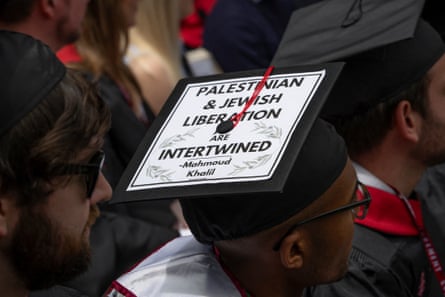
Nineteen months into Israel’s war in Gaza and the US protest movement it prompted, allegations of antisemitism on campuses have become one of the primary pretexts for the Trump administration’s multipronged attack on higher education, including billions in funding cuts, demands universities submit to a string of measures curtailing their academic freedom, and the detention and attempted deportation of international students who expressed pro-Palestinian views.
But increasingly, Jewish students, faculty and alumni are pushing back against the exploitation of antisemitism charges to justify repressive policies they say do not represent their Jewish values. They have written letters, led protests, lobbied legislators and denounced what they say is the systematic exclusion of Jewish perspectives that are critical of Israel from the national conversation over antisemitism.
Jewish Americans – some identifying as “anti-Zionists”, others with a range of views about Israel – have been at the forefront of the movement against the war in Gaza. Last summer, some 200 people, almost all Jewish, were arrested at a protest on Capitol Hill a day before a visit by Benjamin Netanyahu. Earlier this year, more than 350 rabbis, along with more Jewish creatives and activists, signed a New York Times ad denouncing Trump’s proposal to ethnically cleanse Gaza.
But Jewish-led organising has broadened in recent months. As Jewish Americans continue to protest the war, they are also taking on Trump’s onslaught against higher education in the name of Jewish safety, rallying around detained students and condemning what they view as the exploitation of antisemitism in the service of a rightwing political project. In yet another New York Times ad, several former heads of leading Jewish advocacy groups, including conservative ones like Aipac and Hillel International, criticised US Jewish groups that “have been far too silent about the stunning assault on democratic norms and the rule of law” under Trump.
“The repression has been growing, but so has the resistance,” said Marianne Hirsch, a retired literature professor at Columbia University, who researches memory and the Holocaust and is outspoken against efforts to conflate criticism of Israel with antisemitism. “I’m seeing a really cross-generational, Jewish faculty, student, and community mobilisation against this narrative.”
A need for nuance
Jewish Americans’ views on Israel, the war in Gaza, antisemitism on campuses and the Trump administration’s actions are far more complex than mainstream political discourse may suggest.
A recent poll by the Jewish Voters Resource Center found that a majority of Jewish Americans are concerned about antisemitism and say they are “emotionally attached” to Israel, although older respondents poll much higher on both questions than younger ones. But the survey also found that 64% disapprove of Trump’s policies to purportedly combat antisemitism, and 61% believe arresting and deporting pro-Palestinian protesters contribute to increased antisemitism. A rightwing Israeli thinktank found last year that one-third of American Jews believe Israel is committing genocide in Gaza.
While large numbers of Jewish students point to feelings of ostracization on campus in the last year and a half, their views on the campus protests vary widely. A qualitative study of the experiences of Jewish students, published this month, criticizes representations of campus life that “compartmentalize students into either/or categories, diminishing nuances between them”. The authors point to “a need for nuanced discussions about Israel, antisemitism, and Jewish identity that respect generational differences and diverse perspectives”.
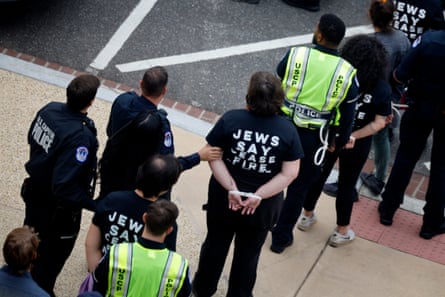
But tackling complex questions – for instance, about when anti-Zionism veers into antisemitism – has become difficult in an increasingly repressive climate. “It is making it impossible to have discussions in the classroom,” said Joel Swanson, a Jewish studies professor at Sarah Lawrence College.
Swanson noted that many Jewish Americans are now mobilising against precisely the kind of repression their ancestors came to the US to escape. “The very liberal principles that have enabled Jewish thriving in the United States are being chipped away at systematically, one by one,” he said.
Many of those who identify as anti-Zionist have found a home under the umbrella of Jewish Voice for Peace, a pro-Palestinian Jewish group whose membership has doubled since the war started – to 32,000 dues-paying members – and whose student chapters were banned from several campuses during last year’s protests. In Baltimore, earlier this month, members of the group’s dozens of chapters gathered for a national convening. Over four days of workshops at the heavily secured event, participants talked about organising from campuses to religious spaces to promote a “Judaism beyond Zionism”, as the conference tagline read, as well as address authoritarianism in the US.
Leaning on Jewishness
As US universities have become political battlefields, much Jewish organising is happening on campuses and academic spaces.
Responding to what they view as a crisis in their scholarly field precipitated by Israel’s atrocities in Gaza, Hirsch, the Columbia scholar, and others have launched a multidisciplinary Genocide and Holocaust Studies Crisis Network, a group of mostly Jewish academics invoking their expertise to advocate against universities capitulating to authoritarianism.
Jewish faculty and students have also organised in defense of pro-Palestinian students detained by the Trump administration. Following the arrest of Mahmoud Khalil, a Palestinian permanent resident and Columbia University graduate who has been detained for nearly three months with no charges, more than 3,400 Jewish faculty across the country signed a letter to denounce “without equivocation, anyone who invokes our name – and cynical claims of antisemitism – to harass, expel, arrest, or deport members of our campus communities”. Several Jewish students and faculty wrote letters to the court in support of Khalil. And Jewish groups and synagogues filed a court briefing in support of Rümeysa Öztürk, a Turkish Tufts University student who was detained over an op-ed critical of Israel and released earlier this month as her case continues.
“Jewish people came to America to escape generations of similar predations,” they wrote. “Yet the images of Ozturk’s arrest in twenty-first century Massachusetts evoke the oppressive tactics employed by the authoritarian regimes that many ancestors of [our] members left behind in Odessa, Kishinev, and Warsaw.”

Faculty and students have also denounced congressional hearings against antisemitism on campuses that they say misrepresent their experiences and exclude their perspectives. As their president prepared to face legislators for a fresh round of antisemitism hearings in Congress this month, Jewish faculty and students at Haverford College issued a statement saying that their voices “have absolutely not been represented in the current public discussion of antisemitism” and questioning the credibility of mostly non-Jewish, Republican legislators leading the battle over antisemitism on campuses.
Earlier this month, a group of Jewish students from Columbia University visited Congress to talk to legislators about their participation in campus protests that politicians paint as antisemitic, bringing their views “to lawmakers who are almost never hearing from that specific perspective”, said Beth Miller, the political director of Jewish Voice for Peace’s action group, who accompanied the group.
As the Trump administration has sought to justify its repressive measures in their names, many American Jews have found themselves invoking their Jewishness in a public way for the first time. “We’ve been criticising identity politics and the way everything gets siloed into identities, and suddenly we find ourselves saying ‘as Jewish faculty’ or ‘as the daughter of Holocaust survivors’,” said Hirsch.
“I’ve always tried to steer clear of having a public Jewish identity. I never felt like I had to advertise it,” echoed Joshua Moses, an anthropology professor at Haverford. “But this moment kind of demands it.”

 German (DE)
German (DE)  English (US)
English (US)  Spanish (ES)
Spanish (ES)  French (FR)
French (FR)  Hindi (IN)
Hindi (IN)  Italian (IT)
Italian (IT)  Russian (RU)
Russian (RU)  1 day ago
1 day ago




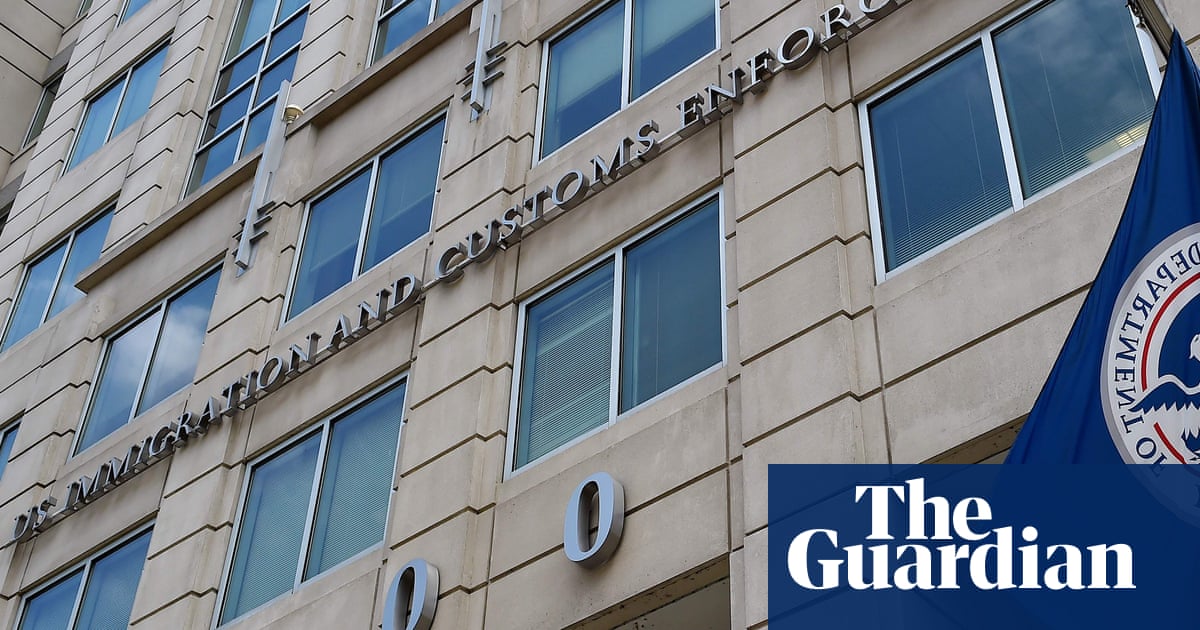


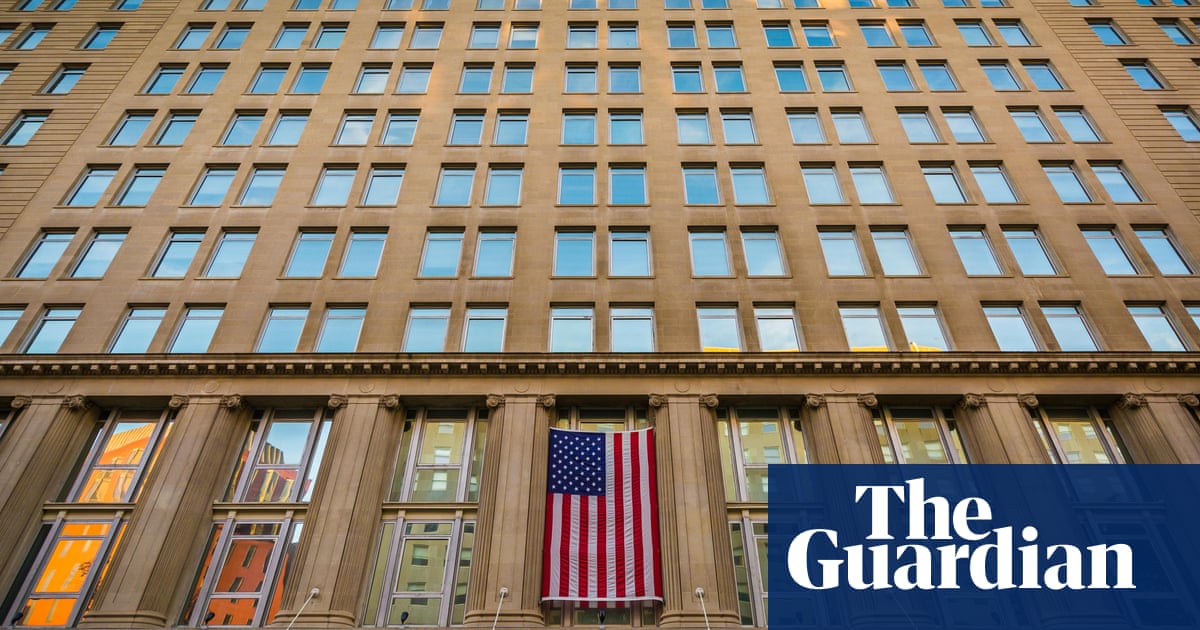





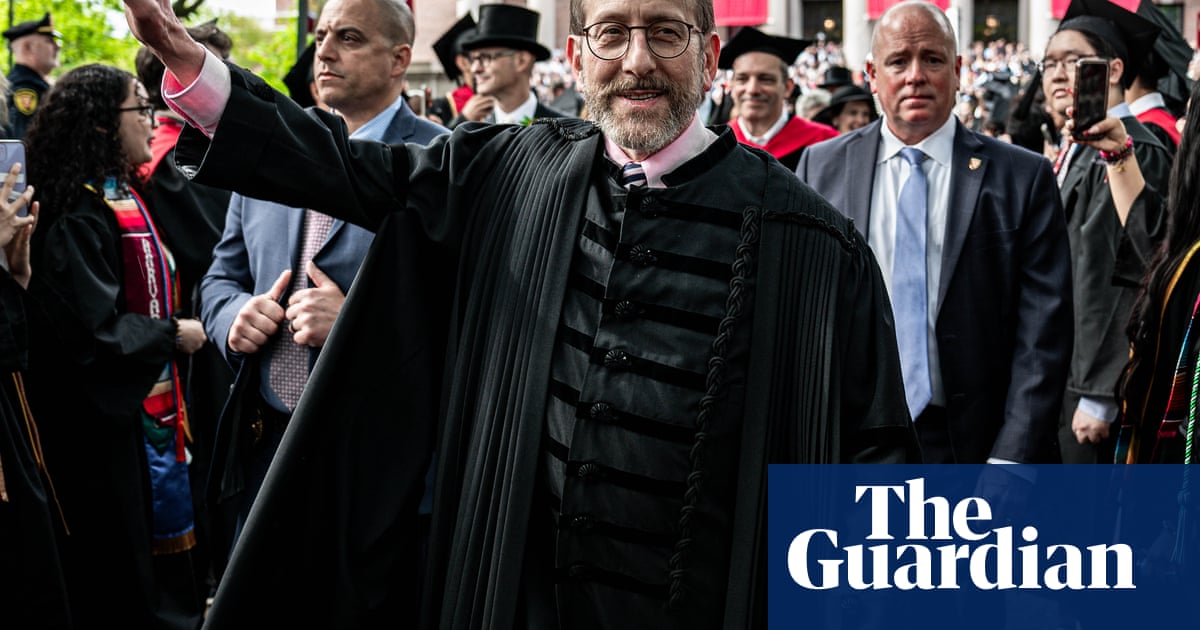
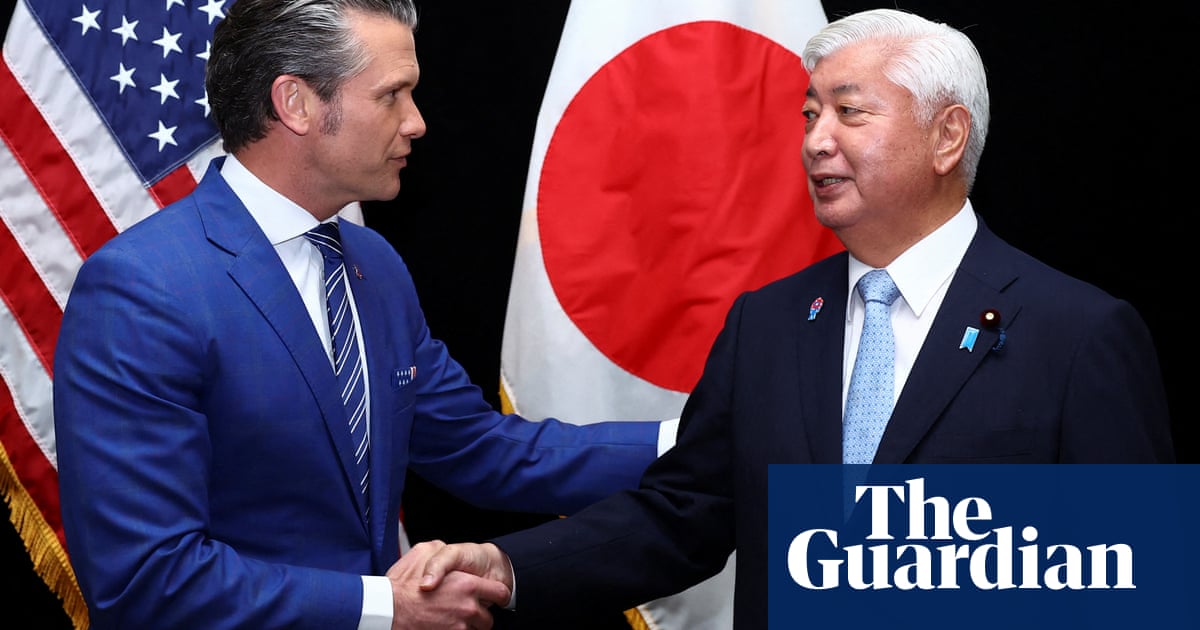


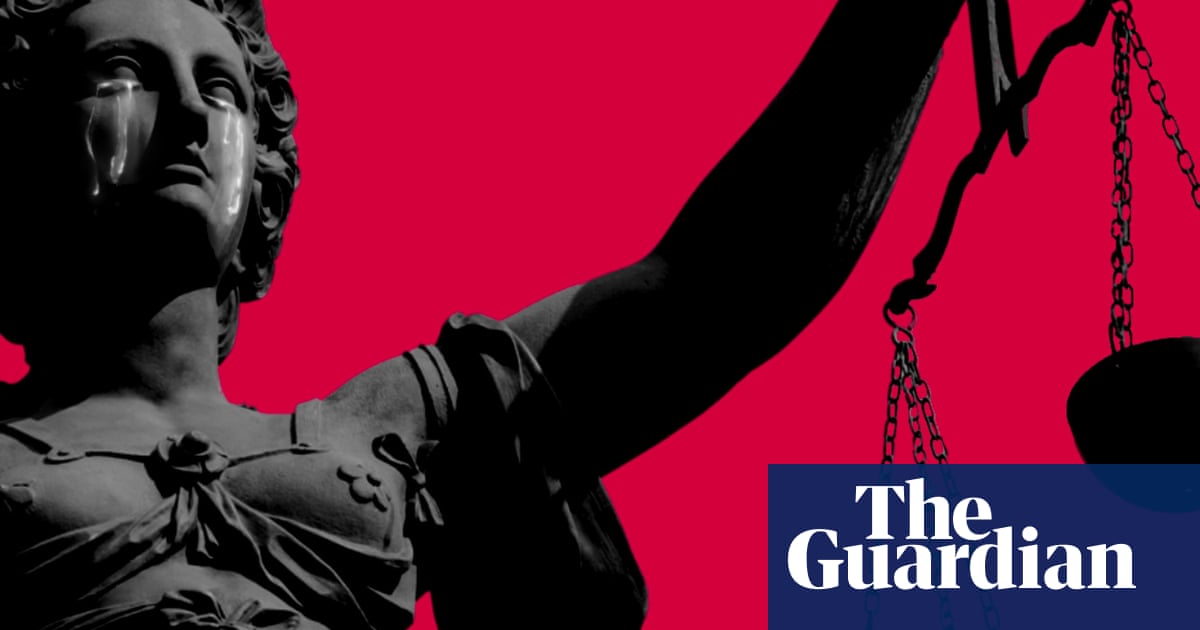





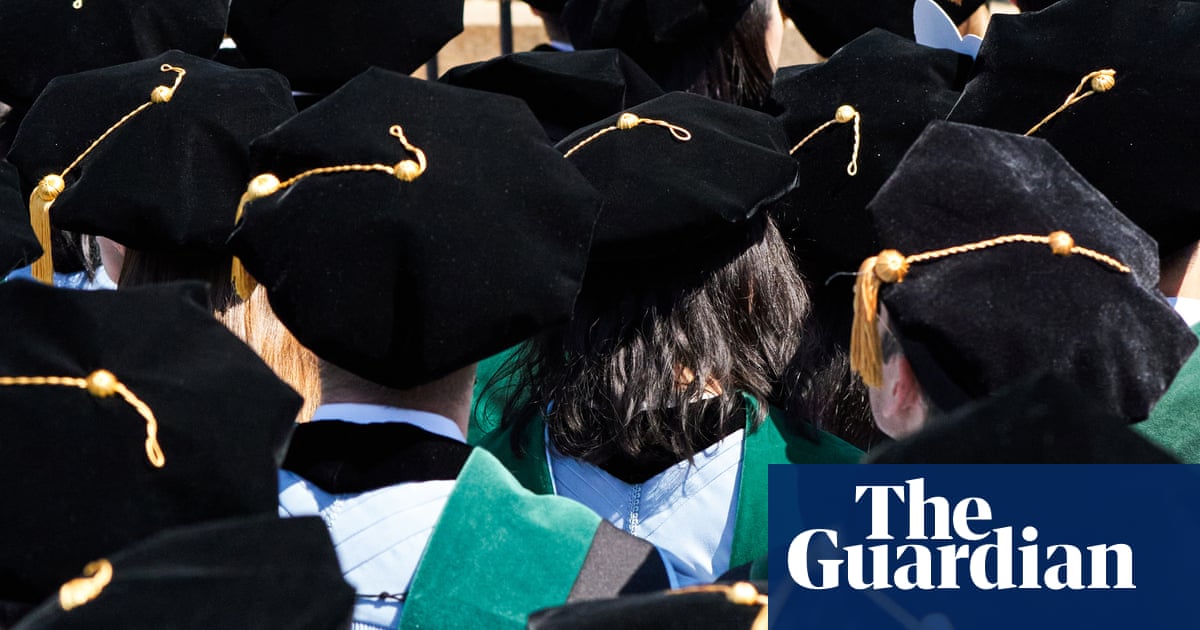
Comments